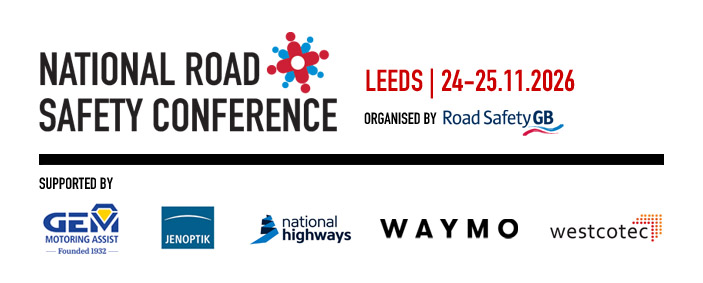Sustainable Transport Manager, Transport for West Midlands & Professional Lead Sustainable Travel, City of Wolverhampton Council
 Claire (left) has over 15 years experience in safer and sustainable travel within local government.
Claire (left) has over 15 years experience in safer and sustainable travel within local government.
Starting as a trainee road safety officer at Sandwell Council back when hedgehogs were the popular mascot, Claire has worked in a variety of roles and is currently sustainable travel manager at Transport for West Midlands (TfWM) with a particular interest in making it safer to cycle and walk.
Linda (below left) has extensive experience in road safety, travel planning and sustainable travel initiatives and began her local authority road safety career at Walsall Council where she managed a large team of volunteers and paid trainers, delivering pedestrian training. This led to a project which Linda developed and successfully won a bid with the DfT to deliver a scheme involving partners including Surestart.
 From her previous roles in the private sector, Linda brought along a wealth of experience in dealing with the public and businesses to City of Wolverhampton Council and one of her roles is chair of the i54 Travel Plan Steering Group. This is a prestigious enterprise zone site, opened by the Queen and hosts JLR, a new engine manufacturing centre.
From her previous roles in the private sector, Linda brought along a wealth of experience in dealing with the public and businesses to City of Wolverhampton Council and one of her roles is chair of the i54 Travel Plan Steering Group. This is a prestigious enterprise zone site, opened by the Queen and hosts JLR, a new engine manufacturing centre.
Presentation: Bostin Bikes and Bostin Commuter: enabling bike ownership and increasing cycling
Bostin Bikes was a Transport for West Midlands (TfWM) LSTF funded pilot project aimed at removing the barrier of non-bike ownership and increasing the number of people completing on-road cycle training. The pilot was focused solely on the Black Country’s four Local Authorities, as 43% of the Black Country LSOA’s are within the most 20% deprived areas of England. The programme involved offering a brand new bicycle, helmet, set of lights and a D-lock to residents of the Black Country for £50, on the condition that they complete Level 1 and Level 2 National Standard Cycle training.
The Bostin Bikes offer was used as an incentive to get people to complete both the Level 1 national standard cycle training, which involves off-road practice to develop basic skills and Level 2 national standard cycle training which trains participants to be comfortable on quiet roads. This incentive was identified in response to a high number of participants who completed Level 1 training, but then did not progress to Level 2, not having access to their own bikes.
The original Bostin Bikes pilot ran between August 2015 and December 2015 and distributed a total of 238 bikes to Black Country residents. 100% of participants completed both Level 1 and 2 training and 60% went on to complete further training such as maintenance training and level 3 cycle training.
Due to the success of the Bostin Bikes Pilot, a slightly adapted scheme was designed to provide a more targeted approach towards employers. Bostin Commuter was created and offered to businesses in the Black Country that were currently engaged with TfWM’s wider programme. Employees who lived within five miles of the business were targeted with the offer to try and improve the commuter modal share of cycling. The pilot engaged 14 separate businesses across the region with an average 10 employees taking up the offer.
In addition a smaller spin-off project saw 60 Bostin Bikes distributed within Sandwell Local Authority as part of a public health initiative to address inactivity among residents. The partnership between TfWM and Sandwell’s public health team meant that the scheme was completely free of charge to these participants.
A telephone survey was conducted of participants of both projects in August 2016. Both projects were rated very highly, with over 90% of participants rating them as good or very good. It was revealed that 96% of participants still use their bike for recreation purposes and 12% use their bikes to commute to work more than twice a week. The Bostin Commuter Pilot had a particularly impressive result with 54% of participants using their bikes to commute to work at least twice a week.
